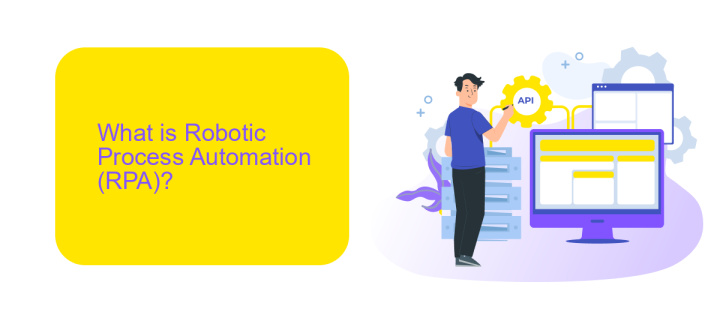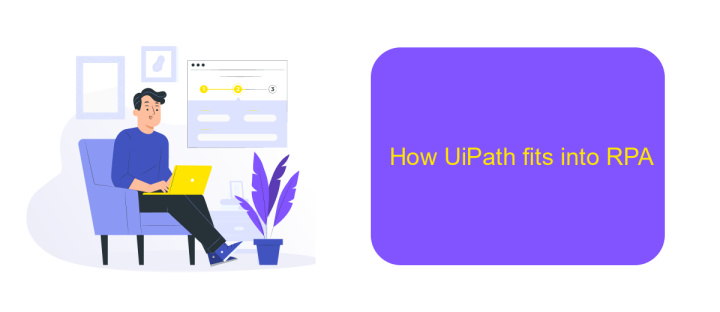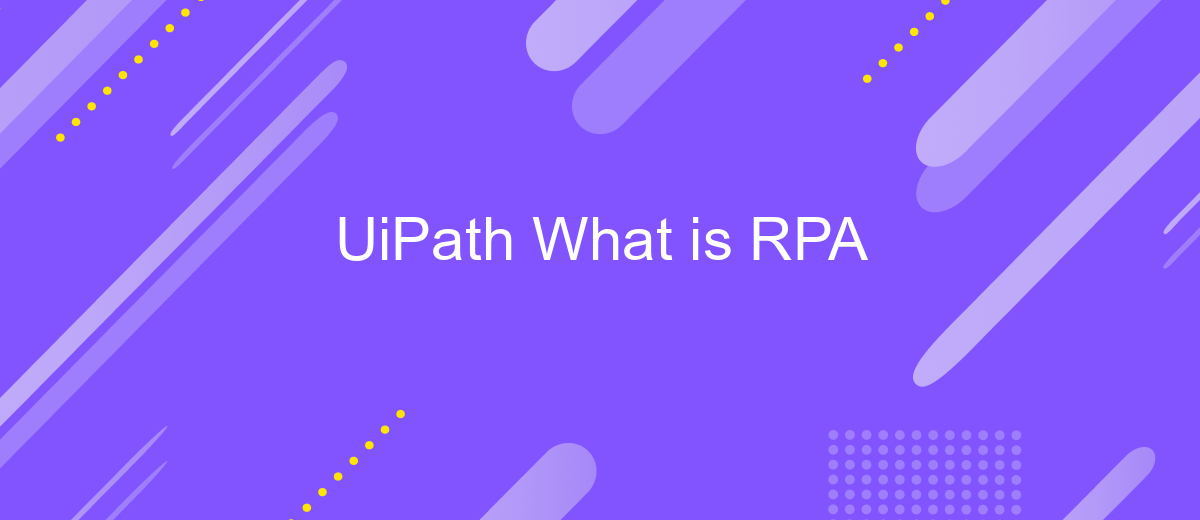UiPath What is RPA
Robotic Process Automation (RPA) is revolutionizing how businesses operate, and UiPath stands at the forefront of this transformation. By automating repetitive and mundane tasks, UiPath's RPA solutions enhance efficiency, reduce human error, and free up employees to focus on more strategic activities. This article delves into the core concepts of RPA and explores how UiPath is leading the charge in this innovative field.
Introduction
Robotic Process Automation (RPA) is transforming the way businesses operate by automating repetitive tasks, allowing employees to focus on more strategic activities. UiPath is a leading RPA platform that enables organizations to develop, deploy, and manage software robots that emulate human actions. By leveraging UiPath, companies can enhance productivity, reduce errors, and achieve significant cost savings.
- Automate mundane and repetitive tasks
- Enhance operational efficiency
- Improve accuracy and reduce human errors
- Enable employees to focus on higher-value work
Integrating RPA solutions like UiPath with other business systems is crucial for maximizing their potential. ApiX-Drive is a service that simplifies the integration process by connecting various applications and automating data transfers. It ensures seamless communication between UiPath and other platforms, thereby enhancing the overall efficiency and effectiveness of automation initiatives. With tools like ApiX-Drive, businesses can effortlessly set up and manage integrations, driving greater value from their RPA investments.
What is Robotic Process Automation (RPA)?

Robotic Process Automation (RPA) is a technology that utilizes software robots to emulate and integrate the actions of a human interacting within digital systems to execute business processes. These software bots can perform a variety of tasks, such as data entry, transaction processing, and managing records, with greater speed and accuracy than human workers. RPA is designed to streamline operations, reduce costs, and improve efficiency by automating repetitive and rule-based tasks, allowing employees to focus on more strategic activities.
One of the key advantages of RPA is its ability to integrate with existing systems without the need for significant changes to the underlying infrastructure. Services like ApiX-Drive facilitate these integrations by providing easy-to-use tools that connect various applications and automate workflows. By leveraging ApiX-Drive, organizations can seamlessly connect their RPA solutions with other software, ensuring smooth data transfer and process automation across different platforms. This enhances the overall efficiency and effectiveness of RPA deployments, making it a valuable asset for businesses looking to optimize their operations.
Benefits of RPA

Robotic Process Automation (RPA) offers numerous advantages for businesses seeking to streamline operations and enhance productivity. By automating repetitive and mundane tasks, RPA allows employees to focus on more strategic and creative activities, thereby increasing overall efficiency and job satisfaction.
- Cost Reduction: RPA significantly lowers operational costs by minimizing human errors and reducing the need for manual labor.
- Improved Accuracy: Automated processes are less prone to errors, ensuring higher quality and consistency in outputs.
- Scalability: RPA systems can easily be scaled up or down to meet changing business demands without additional investment in human resources.
- Enhanced Compliance: RPA ensures that all processes are carried out in accordance with regulatory standards, reducing the risk of non-compliance.
- Integration Capabilities: Services like ApiX-Drive facilitate seamless integration between various software applications, further enhancing the efficiency of automated workflows.
Incorporating RPA into business operations not only drives efficiency but also fosters innovation by freeing up valuable human resources. The ability to integrate RPA with existing systems through platforms like ApiX-Drive makes the transition smoother and more effective. Overall, RPA is a transformative technology that offers substantial benefits for businesses of all sizes.
How UiPath fits into RPA

UiPath is a leading platform in the Robotic Process Automation (RPA) industry, providing tools that enable businesses to automate repetitive tasks efficiently. By leveraging UiPath, organizations can streamline their operations, reduce human error, and improve overall productivity. The platform is designed to be user-friendly, making it accessible for both technical and non-technical users.
One of the key strengths of UiPath is its ability to integrate seamlessly with various applications and systems. This is achieved through its robust set of APIs and connectors, allowing businesses to connect their existing software with the UiPath platform effortlessly. For instance, services like ApiX-Drive facilitate these integrations, enabling smooth data flow between different applications.
- Easy-to-use drag-and-drop interface
- Comprehensive library of pre-built activities
- Advanced analytics and reporting features
- Strong community and support resources
In summary, UiPath fits into the RPA landscape by offering a versatile and powerful platform that caters to diverse business needs. Its integration capabilities, supported by services like ApiX-Drive, ensure that organizations can automate processes seamlessly, driving efficiency and innovation.
Conclusion
In conclusion, UiPath and RPA (Robotic Process Automation) represent a significant advancement in automating repetitive and time-consuming tasks, allowing businesses to enhance operational efficiency and reduce human error. By leveraging UiPath's robust platform, organizations can streamline processes, improve accuracy, and allocate human resources to more strategic activities. The integration capabilities of UiPath further expand its utility, enabling seamless connections with various systems and applications.
For businesses looking to optimize their integration processes, services like ApiX-Drive offer invaluable support. ApiX-Drive simplifies the integration of multiple applications without the need for extensive coding, making it easier for organizations to connect their RPA solutions with other tools and platforms. This not only accelerates the deployment of automated workflows but also ensures that different systems work harmoniously together. Ultimately, the combination of UiPath's RPA capabilities and ApiX-Drive's integration services empowers businesses to achieve greater productivity and innovation.
- Automate the work of an online store or landing
- Empower through integration
- Don't spend money on programmers and integrators
- Save time by automating routine tasks
FAQ
What is RPA?
How does UiPath fit into RPA?
What are the benefits of using RPA with UiPath?
Can RPA integrate with other systems and applications?
Is RPA suitable for small businesses?
Routine tasks take a lot of time from employees? Do they burn out, do not have enough working day for the main duties and important things? Do you understand that the only way out of this situation in modern realities is automation? Try Apix-Drive for free and make sure that the online connector in 5 minutes of setting up integration will remove a significant part of the routine from your life and free up time for you and your employees.


